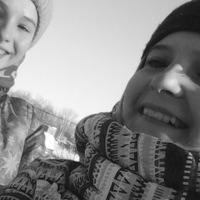
Вопрос задан 29.04.2019 в 11:37.
Предмет Английский язык.
Спрашивает Земдиханова Айгуль.
Вставь пропущегве глаголы was,were The weather____finelast summer. ,wes или were Tiny and his
friends______in the mountains last winter. _____you at home last night? -- Yes I_____. The house ___ old but nice. She ____in the city. There _____some letters on the table 0
0
 0
0
Ответы на вопрос
 Внимание! Ответы на вопросы дают живые люди. Они могут содержать ошибочную информацию, заблуждения, а также ответы могут быть сгенерированы нейросетями. Будьте внимательны. Если вы уверены, что ответ неверный, нажмите кнопку "Пожаловаться" под ответом.
Внимание! Ответы на вопросы дают живые люди. Они могут содержать ошибочную информацию, заблуждения, а также ответы могут быть сгенерированы нейросетями. Будьте внимательны. Если вы уверены, что ответ неверный, нажмите кнопку "Пожаловаться" под ответом.

Отвечает Крылатая Луна.
1. was
2. were
3. Were/was
4. Was
5. was
6. were
2. were
3. Were/was
4. Was
5. was
6. were
 0
0
 0
0

Отвечает нейросеть ChatGpt. Будьте внимательны, ответы нейросети могут содержать ошибочные или выдуманные данные.
The weather was fine last summer.
The correct form of the verb to use in this sentence is "was." The sentence is referring to the weather in the past, specifically last summer. Therefore, we use the past tense form of the verb "to be," which is "was" for singular subjects. The correct sentence is: "The weather was fine last summer."Tiny and his friends were in the mountains last winter.
The correct form of the verb to use in this sentence is "were." The sentence is referring to Tiny and his friends in the past, specifically last winter. Therefore, we use the past tense form of the verb "to be," which is "were" for plural subjects. The correct sentence is: "Tiny and his friends were in the mountains last winter."Were you at home last night?
The correct form of the verb to use in this question is "were." The question is asking about the subject "you" in the past, specifically last night. Therefore, we use the past tense form of the verb "to be," which is "were" for the subject "you." The correct question is: "Were you at home last night?"Yes, I was.
The correct form of the verb to use in this response is "was." The response is affirming that the speaker was at home last night. Therefore, we use the past tense form of the verb "to be," which is "was" for the subject "I." The correct response is: "Yes, I was."The house is old but nice.
The correct form of the verb to use in this sentence is "is." The sentence is describing the current state of the house, which is old but nice. Therefore, we use the present tense form of the verb "to be," which is "is" for singular subjects. The correct sentence is: "The house is old but nice."She lives in the city.
The correct form of the verb to use in this sentence is "lives." The sentence is describing the current action of the subject "she," which is living in the city. Therefore, we use the present tense form of the verb "to live," which is "lives" for singular subjects. The correct sentence is: "She lives in the city." [[1]](https://englishinn.ru/present-simple-tense-uprazhneniya-uroven-bazovyiy.html)There are some letters on the table.
The correct form of the verb to use in this sentence is "are." The sentence is describing the current existence of some letters on the table. Therefore, we use the present tense form of the verb "to be," which is "are" for plural subjects. The correct sentence is: "There are some letters on the table." [[1]](https://englishinn.ru/present-simple-tense-uprazhneniya-uroven-bazovyiy.html) 0
0
 0
0
Топ вопросов за вчера в категории Английский язык
Последние заданные вопросы в категории Английский язык
Предметы
-
Математика
-
Литература
-
Алгебра
-
Русский язык
-
Геометрия
-
Английский язык
-
Химия
-
Физика
-
Биология
-
Другие предметы
-
История
-
Обществознание
-
Окружающий мир
-
География
-
Українська мова
-
Информатика
-
Українська література
-
Қазақ тiлi
-
Экономика
-
Музыка
-
Право
-
Беларуская мова
-
Французский язык
-
Немецкий язык
-
МХК
-
ОБЖ
-
Психология
-
Физкультура и спорт
-
Астрономия
-
Кыргыз тили
-
Оʻzbek tili





















